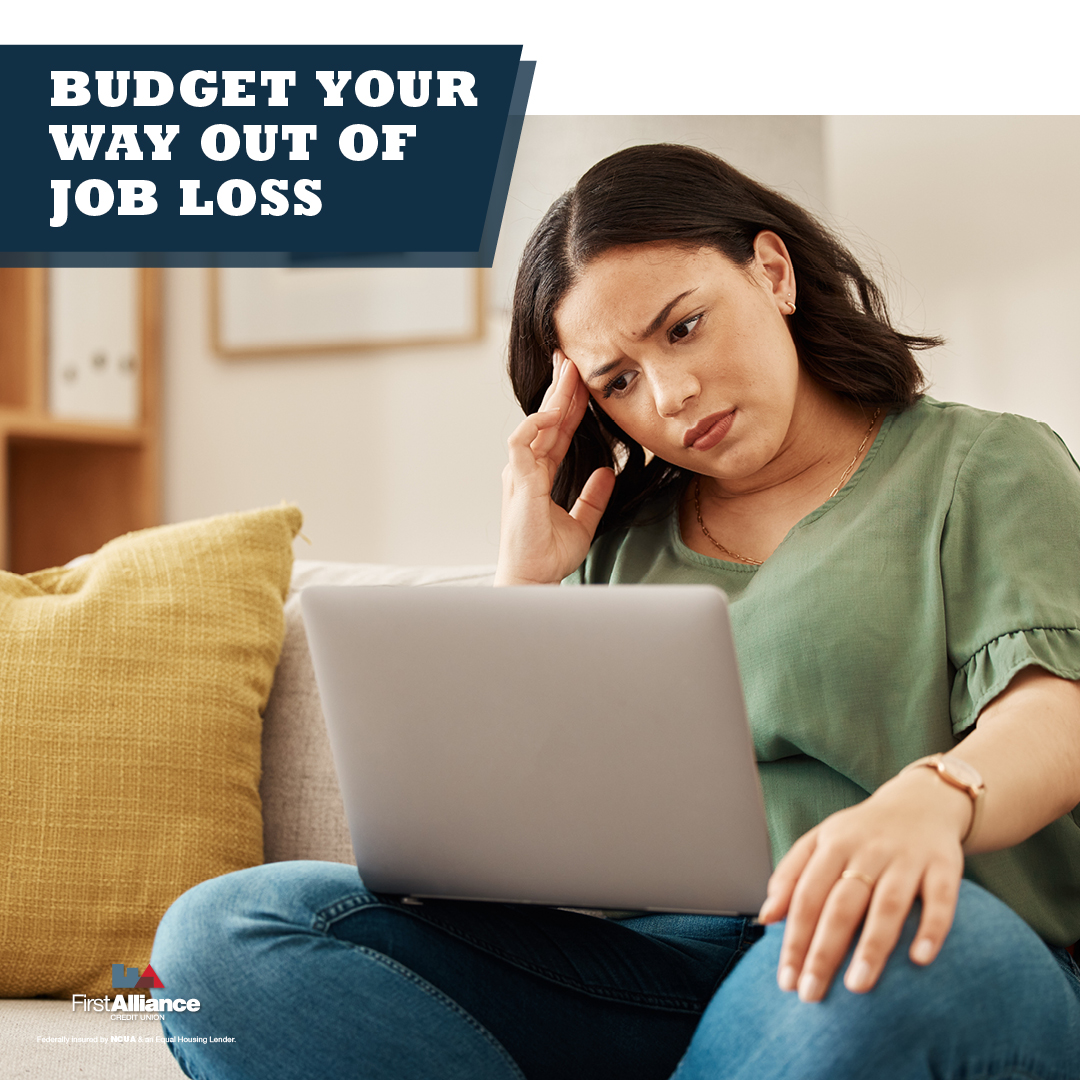How to Budget Your way out of Job Loss
Losing your job can be a surreal experience. In a matter of minutes, your paycheck is gone, as is a major portion of your life, from your morning...

If you’ve ever been laid off or terminated from a position, you know how stressful it can be. If it's any consolation, you're not alone. According to a Harris poll, 40% of Americans have been laid off at some point in their lives.
Losing your job is one of the most stressful events that anyone can go through. However, you can take some steps to not only make the transition easier but get back on your feet that much quicker.

When you get laid off, human resources may give you a severance package. What is in the severance package varies from company to company, but many companies will at least give you something. Usually, the employer will want you to sign some documents that include a legal release and a Hold Harmless Agreement to minimize their liability before giving you your severance pay.
While you are likely to still be in shock when the employer waves the legal documents under your nose, it’s to your benefit to look them over. Make sure you know what you are getting, and don’t be afraid to negotiate for more, like outplacement benefits. You may not feel as though you are in a position to negotiate, but you don’t have anything to lose at this point.
One of the biggest benefits employers provide their workers is health insurance. Once you’re laid off, though, you’re on your own.
It’s no secret that medical care will bankrupt anyone in the United States without health insurance coverage. However, you are eligible for temporary medical insurance for at least 18 months under COBRA. This is a federal law that lets people who have lost their employer-provided healthcare continue with the same coverage for the next 18 months, provided they can pay the insurance premium, which was around $7,188 for single coverage and $20,576 for family coverage as of December 2019.
Fortunately, if you’re in Minnesota, you have access to MNSure, which will help you select a private health care plan. You can compare plan benefits and prices, and if you qualify as low-income you may even be eligible for Medicaid or MinnesotaCare.
Once you’ve left your job, your next step should be filing for unemployment benefits.
Don’t delay this step! If you do, you might discover that you’ve waited too long to qualify for unemployment. Fortunately, Minnesota allows you to file for unemployment benefits online.
Unemployment will get you about 50% of your average weekly wage or $740 each week, whichever is less.
After losing your job, it's important to assess your financial situation and make a plan. Consider factors such as creating a budget, applying for unemployment benefits, exploring healthcare options, and prioritizing expenses. It's also wise to reach out to creditors and create a repayment plan if needed.
The foundation for financial security starts with budgeting, and it's even more important when money is tight. As soon as you've filed for unemployment and know how much you'll be bringing in, sit down and adjust your budget for your new income.
Admittedly, adjusting your budget may be the last thing you want to do after being deprived of a regular paycheck. However, the sooner you get this done, the less likely you'll be to overspend and get yourself in debt.
The good news is that adjusting your budget isn't complicated. Just go through and reduce your expenses until the total of what you're spending each month matches your new income. Again, this won't be pleasant, but when you get done you'll at least be able to feel confident that your finances are under control.
If you're in danger of falling behind on any loans, including
Contact your creditors and let them know about your job loss before your account becomes delinquent. This isn't something anyone wants to admit, let alone to a lender, but it's important. When you explain your position to lenders, you'll be letting them know you're not ignoring your loans or trying to get out of paying what you owe.
Keep in mind that most lenders want to work with their borrowers to make sure they get their money back. You might be able to temporarily get your payments reduced or even postponed temporarily (although you'll probably still have to pay the interest). If you do get this kind of agreement, make sure you have a copy of the paperwork, or at least the emails between you and the lender.
Next, get ready to search for your new job. You’re probably already familiar with the basics of a job hunt, like
While you’re doing all that, though, don’t forget to touch base with your former coworkers and ask for references. You probably made some friends in your last job, and you’ll more than likely have a lot of people willing to go to bat for you. Don’t forget to do something nice for them if they agree, and especially if they write you a nice letter of recommendation.
You’ll also want to contact the human resources department at your previous job and do a reference check with them. Ask what they will say if another employer calls them with any questions. Usually employers will just tell the interviewer that you worked at the company and give the dates of your employment, but you might also want to see if they are willing to write you a letter that states you were laid off through no fault of your own.
If you really want to maximize your job search, though, think about your career goals before you even start combing the job market for your next position. Think about what your dream job would be, and start planning how you can achieve it. You might even consider getting some professional help in the form of a career coach.
Being laid off can be a lot to process. After you've gotten home and filed for unemployment, take some time for yourself. You probably have a range of emotions like hurt, anger and fear to process, so give yourself permission to grieve and take the time you need to emotionally deal with losing your job.
You should also schedule some time for yourself while you're getting ready to search for your next job, and through the job search process. Work on your hobbies, exercise and spend some time with your friends and family. You might even want to see if your savings account has some money you can use to treat yourself.
Losing your job is a traumatic experience. However, when you know what to do if you lose your job, you can start getting back on your feet that much sooner. You can also use the resources First Alliance Credit Union offers to help you make the best financial choices for you and your family.
We offer a variety of services to members who are going through financial hardship. Our lending advisors can help you refinance your loans to get a lower monthly payment and consolidate your debts. First Alliance also offers financial guides, such as our beginner’s guide to budgeting that will help you allocate your money most effectively, and calculators that will help you with figuring out a budget to the length of time you’ll need to pay off your credit cards.
Not a member yet? That's okay, reach out to our team and we will still help you get pointed in the right financial direction.

Losing your job can be a surreal experience. In a matter of minutes, your paycheck is gone, as is a major portion of your life, from your morning...

So you’ve finally arrived. After years of effort, you’ve joined the elite class of Americans that make over $100,000 a year. Now’s the time to cut...

If you’ve never thought much about money or your finances before, it can be hard to know where to start. To help you gain control over your own...